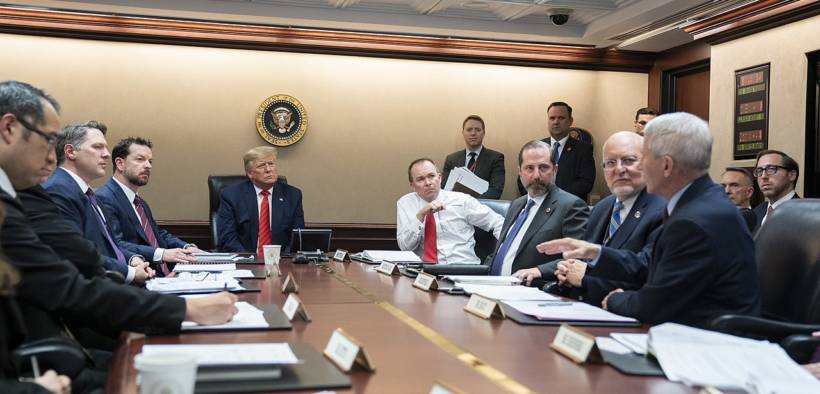China Accuses US Of Fear-Mongering Over Coronavirus

China accused the US of excessive fear-mongering over the coronavirus outbreak with travel restrictions and evacuations, as Chinese stocks plummeted to their worst day in years over fears of the virus.
On Monday, the Chinese foreign ministry alleged the United States is spreading fear instead of offering any significant help to prevent the spread of the coronavirus.
The United States became the first country to deny entry to any foreign nationals who have been in China in the last two weeks, and they issued a partial withdrawal of embassy staff. The announcement came when Health and Human Services Secretary Alex Azar declared a public emergency on Friday.
According to a Reuters report, Chinese foreign ministry spokesman ministry spokeswoman Hua Chunying said, “it is precisely developed countries like the United States with strong epidemic prevention capabilities and facilities that have taken the lead in imposing excessive restrictions contrary to WHO recommendations.”
Other countries have followed the United States lead including Australia, Russia, Japan, and Pakistan.
Against Recommendations
The World Health Organization (WHO) has advised against such travel restrictions, and the organization made a statement after the United States declared a national emergency.
WHO director-general Dr. Tedros Adhanom Ghebreyesus said, “travel restrictions can cause more harm than good by hindering info-sharing, medical supply chains and harming economies. We urge countries & companies to make evidence-based, consistent decisions.”
The WHO has advised countries to screen for the virus at border crossings, but it warned restrictive bans could increase the spread of the virus due to an uptick of unofficial, unregulated border crossings.
Offering harsher words, Chinese foreign minister Hua said, “many countries have offered China support in various means. In sharp contrast, certain U.S. officials’ words and actions are neither factual nor appropriate. Just as the WHO recommended against travel restrictions, the U.S. rushed to go in the opposite way.”
However, Azar took the WHO’s announcement that the coronavirus was a global emergency very differently. At a press conference, he said, “following the World Health Organization decision, I have today declared that the coronavirus represents a public health emergency in the United States.”
The tough words and disagreement between health and foreign officials are taking place at a delicate time for relations between China and the United States.
The war of words comes only three weeks after the United States and China signed a tentative trade deal to cool the trade war started by President Donald Trump. The deal only set out some preliminary agreements and many important details remain to be agreed upon.
World’s Second Largest Economy
While most have been concerned about the deadly spread of the virus and its rising death toll with at the time of publication 361 deaths in mainland China, economic alarms are beginning to sound.
The outbreak came during the vacation period for the Lunar New Year, but the Chinese government has extended the vacation period until February 13th and has banned public gatherings such as weddings.
China has already pumped $22 billion dollars into its economy to attempt to counteract the standstill in daily life, but it was unable to prevent the biggest dip in its stock market in four years, falling nearly 8%.
China was criticized for acting slow at the beginning of the outbreak, but officials have since taken drastic measures including quarantining the metropolis of Wuhan, home to 11 million citizens. These drastic measures are an attempt to limit the deadly spread of the coronavirus, but they stand to dangerously impact its economy.
By taking the restrictive lead on China, the United States removes any pretense of being a cooperative partner in aiding the effort to fight against the virus. The decision squares with a rash of recent decisions by the White House including imposing restrictive visa regulations on six new countries.
Instead, China is left to seek greater support from other partners including the European Union, and in many cases fend for itself and take even more drastic measures.















